Where Do You Locate the AC Capacitor?
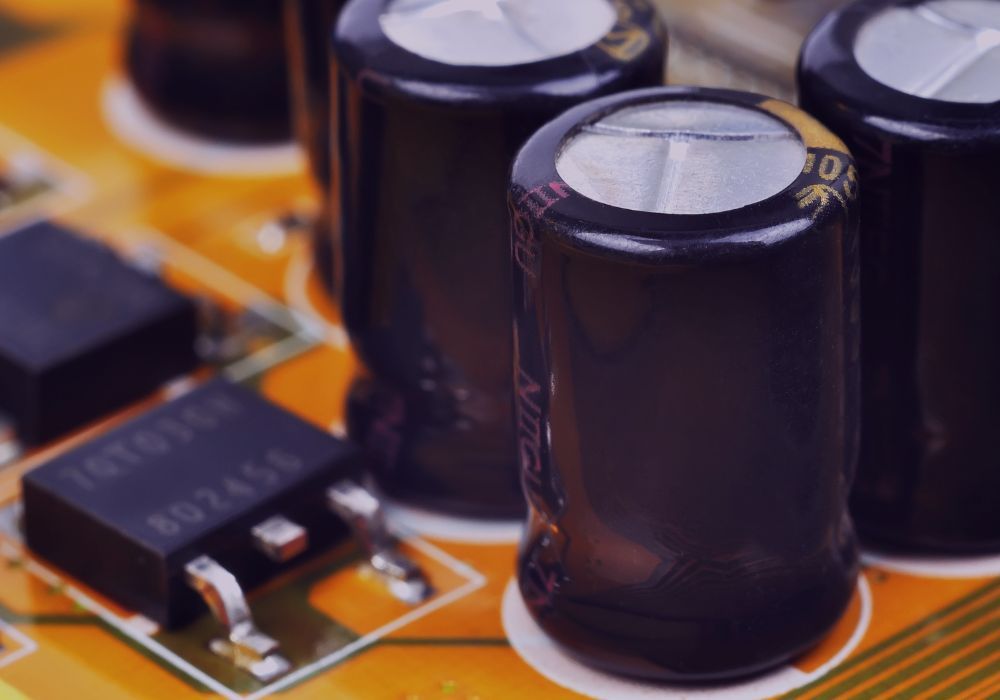
Table of Contents
ToggleTL;DR: The AC capacitor is usually located in the outdoor compressor unit of your home air conditioning system, often housed inside a metal or plastic casing near the electrical components. It can also be found in different locations depending on the type of AC unit, such as inside window units or split systems. Always ensure the power is off and follow safety precautions if you plan to locate it yourself and hire a professional for capacitor replacements.
The AC capacitor is a critical component that plays a pivotal role in the efficiency and functionality of your air conditioner system. Whether you’re a DIY enthusiast or simply a homeowner seeking to understand more about your AC unit, this blog will provide you with insightful information about what an AC capacitor is, its importance, how to safely locate it within different types of air conditioning systems, and the benefits of hiring a professional HVAC company.
By the end of this guide, you’ll be equipped with the knowledge needed for basic troubleshooting, the importance of professional maintenance, and safety precautions to ensure safety for you and your your home’s cooling system.
The Role Of An AC Capacitor In An HVAC System
An AC capacitor is an integral component of your HVAC (Heating, Ventilation, and Air Conditioning) system, playing a critical role in the efficient operation of your air conditioner. Technically, it’s an electrical component that stores and releases electrical energy, functioning somewhat like a rechargeable battery.
Capacitors are used in various types of motors that run within your HVAC system, primarily in the compressor, the blower motor, and the outside fan. Each of these motors requires a surge of energy to start up, and it’s the capacitor’s job to provide this boost. Additionally, run capacitors help maintain a consistent power supply to keep the motor running smoothly. Their ability to store and release energy quickly makes them indispensable in the rapid start-stop cycles of air conditioning units.
The role of the capacitor in your HVAC system is twofold: starting and running. The start capacitor gives the motor a jolt of energy to get it up and running, while the run capacitor continuously supplies energy to keep it going. Over time, capacitors can lose their ability to hold a charge, leading to HVAC system malfunctions such as the air conditioner not blowing cold air or not turning on at all.
This is why understanding their function and health is crucial for homeowners. A failing capacitor not only affects the comfort level in your home but can also lead to more significant issues with your HVAC system. By ensuring your capacitors are in good working order, you contribute to the overall efficiency and longevity of your air conditioning system.
Locating the AC Capacitor
Locating the AC capacitor in your air conditioning system is a task that requires a bit of familiarity with the unit’s components. Typically, the capacitor is housed within the outdoor unit of your AC system, known as the condenser. To find it, first ensure that the power to your AC unit is completely turned off for safety. Then, remove the access panel on the condenser unit; this usually involves unscrewing a few bolts.
Inside, you’ll find the capacitor, which is often cylindrical in shape and may be either metal or plastic. It’s generally situated close to the electrical controls and is connected by several wires. It’s important to note that in some systems, particularly in split AC units or window air conditioners, the capacitor may be located in a different part of the unit, so always refer to your specific model’s manual for guidance.
Note: When locating the capacitor, it’s crucial to exercise caution and adhere to safety protocols. Even with the power off, capacitors store a charge and can be dangerous if mishandled.
If you’re not comfortable or familiar with electrical components, it’s highly recommended to seek professional assistance. Additionally, it’s useful to know the type of capacitor your system uses, as AC units typically employ either a start capacitor, which gives the motor a boost to start, or a run capacitor, which maintains a steady energy supply to keep the motor running. Understanding where and what type of capacitor your system uses is essential for accurate diagnosis and maintenance, ensuring your air conditioning unit operates smoothly and efficiently.
AC Capacitor Safety Precautions
When dealing with an AC capacitor, safety must be your top priority. Capacitors in air conditioning systems can retain a charge even when the power is off, posing a risk of electrical shock and other risks. Following these safety precautions can help prevent accidents and ensure a safe maintenance experience:
- Turn Off Power Supply: Always ensure the power to your AC unit is completely turned off before attempting any inspection or maintenance. This can be done by switching off the relevant breaker in your electrical panel.
- Use Insulated Tools: When working with electrical components, use tools with insulated handles to reduce the risk of electrical shock.
- Wear Protective Gear: Safety gloves and goggles are essential to protect your hands and eyes from potential electrical sparks or other hazards.
- Discharge the Capacitor: Before handling the capacitor, it’s crucial to discharge it. This can be done by placing an insulated screwdriver across the capacitor’s terminals. However, if you are not familiar with this process, it’s best to leave it to a professional.
- Handle with Care: Capacitors can be fragile. Avoid dropping or mishandling them, as this can cause damage to the unit.
- Check for Signs of Damage: Before touching the capacitor, visually inspect it for any signs of damage like bulging, leaks, or burn marks. If you notice any damage, do not attempt to fix it yourself and consult a professional.
- Stay Informed About Your Specific Unit: Capacitors may vary slightly depending on the make and model of your AC unit. Always consult your unit’s manual for specific instructions and warnings.
- Seek Professional Help: Even if you think you can handle the risks or f you are not confident in your ability to safely handle the capacitor, it is always safer and more advisable to call a qualified HVAC technician.
Remember, dealing with HVAC electrical components can be dangerous. If you’re ever in doubt, it’s best to err on the side of caution and get professional assistance. Safety should always be your first concern when performing any type of maintenance on your air conditioning system.
Common Signs Of Capacitor Problems
Identifying common signs of capacitor problems in your AC unit is crucial for timely maintenance and repairs. One of the most noticeable symptoms is when the air conditioning system struggles to start or fails to turn on at all. This issue, often termed as ‘hard starting,’ can be attributed to a weakened capacitor that no longer provides the necessary energy burst to activate the motors.
Another tell-tale sign is the AC unit shutting off randomly or not running for long periods, indicating that the capacitor cannot sustain a consistent power supply. In some cases, you might hear a humming noise from your AC unit, suggesting that the capacitor is trying to start the motor but is failing due to insufficient power storage.
Additionally, an air conditioner that doesn’t blow cold air as efficiently as it used to might also be experiencing capacitor issues. This inefficiency can arise because the run capacitor, responsible for maintaining a steady voltage supply to the motor, is failing. Physical signs are also indicative of capacitor problems. If you notice the capacitor is bulging, leaking, or has burn marks, it’s a clear sign that it needs replacement.
Regular inspection for such signs can prevent further damage to your air conditioning system. It’s essential to address these symptoms promptly, as a malfunctioning capacitor not only diminishes the efficiency of your AC unit but can also lead to more severe and costly damages in the long run.
Capacitor Maintenance Tips
Regular maintenance of your AC capacitor is vital to ensure the longevity and efficiency of your air conditioning system. While capacitors are generally durable and require minimal upkeep, there are a few maintenance tips that can help in prolonging their life and ensuring optimal performance:
- Regular Inspection: Periodically check your AC capacitor for any signs of wear and tear. Look for indications like bulging, leaking, or burn marks. If the capacitor appears to be in poor condition, it may need to be replaced.
- Professional Servicing: Schedule annual or bi-annual professional servicing for your air conditioning system. HVAC technicians can conduct thorough inspections, including checking the health of your capacitor, and can address any issues before they escalate.
- Clean Around the Capacitor: Ensure the area around the capacitor within the AC unit is clean and free of debris. Dust and dirt can impact the performance of the capacitor and the AC unit as a whole.
- Avoid DIY Repairs: If you suspect a problem with your capacitor, avoid trying to repair it yourself unless you have the necessary expertise. Capacitors can retain charge and pose a risk of electric shock. Professional handling is advised for safety.
- Monitor AC Performance: Keep an eye on your AC unit’s performance. If you notice any changes such as the AC struggling to start or not cooling efficiently, it could be a sign of capacitor issues.
- Ensure Proper Electrical Supply: Fluctuations in power supply can impact the health of your capacitor. Ensure that your AC unit is receiving a stable electrical supply. Using voltage stabilizers can be beneficial in areas with frequent power fluctuations.
- Avoid Overloading the System: Do not run your AC unit more than necessary. Overuse can put additional strain on the capacitor and other components, leading to quicker wear and tear.
- Replace Capacitors at Signs of Wear: Capacitors are not overly expensive and are a critical component of your AC system. If there are signs of degradation, replacing them promptly can save you from more significant AC malfunctions.
By following these maintenance tips, you can significantly extend the life of your AC capacitor and avoid many common issues associated with capacitor failure. Regular care and professional inspections are key to keeping your air conditioning system running smoothly.
The Importance Of Professional HVAC Services
The importance of professional HVAC services in maintaining and repairing your air conditioning system cannot be overstated. HVAC professionals possess the specialized knowledge, tools, and experience required to handle the complex and varied components of air conditioning systems. This expertise is crucial not only for performing routine maintenance but also for diagnosing and repairing more intricate problems that may arise. Professional technicians are trained to identify issues accurately and provide effective solutions, ensuring that your system operates at peak efficiency.
Their services extend beyond mere troubleshooting; they offer invaluable advice on system upkeep, energy efficiency, and can recommend upgrades or replacements when necessary. This guidance is particularly beneficial for extending the lifespan of your system and can lead to significant savings on energy bills and costly repairs.
Moreover, safety is a paramount concern when dealing with HVAC systems, especially when electrical components like capacitors are involved. Professional HVAC services adhere to strict safety protocols to ensure that all maintenance and repairs are conducted safely, reducing the risk of accidents or damage to your property. Attempting to service or repair HVAC systems without the proper training can lead to errors, further damages, or even personal injury. Professionals also ensure that your system is compliant with local regulations and standards, which is vital for both safety and legal reasons.
Additionally, many HVAC components require precise calibration and installation, tasks that are best handled by professionals to guarantee optimal functionality. In essence, professional HVAC services provide not just convenience and expertise, but also peace of mind, knowing that your system is in capable and qualified hands.
Reliable HVAC Services Near You
In conclusion, understanding the location and role of the AC capacitor in your air conditioning system is key to ensuring its efficient and safe operation. We’ve covered the basics of what a capacitor is, where to find it in different types of AC units, and the importance of recognizing signs of potential problems. Additionally, we’ve emphasized the crucial safety precautions to take when dealing with this component and the benefits of regular maintenance. Remember, while some basic checks can be done independently, the expertise and safety provided by professional HVAC services are invaluable.
Looking for reliable and expert air conditioning and heating services in Las Vegas? Look no further than Summit Air Conditioning & Heating! Our team of experienced and certified technicians is dedicated to providing top-notch service and solutions for all your HVAC needs. We offer comprehensive services including installation, maintenance, and repair of AC units, with a special focus on critical components like capacitors.
Frequently Asked Questions About Capacitors
Where is the capacitor typically located in a home AC system?
In most home AC systems, the capacitor is located in the outdoor compressor unit. It’s usually housed inside a metal or plastic casing near the electrical components.
Is it safe to inspect or replace the capacitor myself?
While you can locate the capacitor yourself, replacing or inspecting it involves handling electrical components, which can be dangerous. It’s recommended to have a professional handle repairs and replacements.
How often should the AC capacitor be replaced?
The lifespan of an AC capacitor typically ranges from 5 to 20 years, depending on usage and maintenance. It’s advisable to have it checked during regular AC maintenance to assess its condition.
Other Blogs You May Be Interested In
Categories
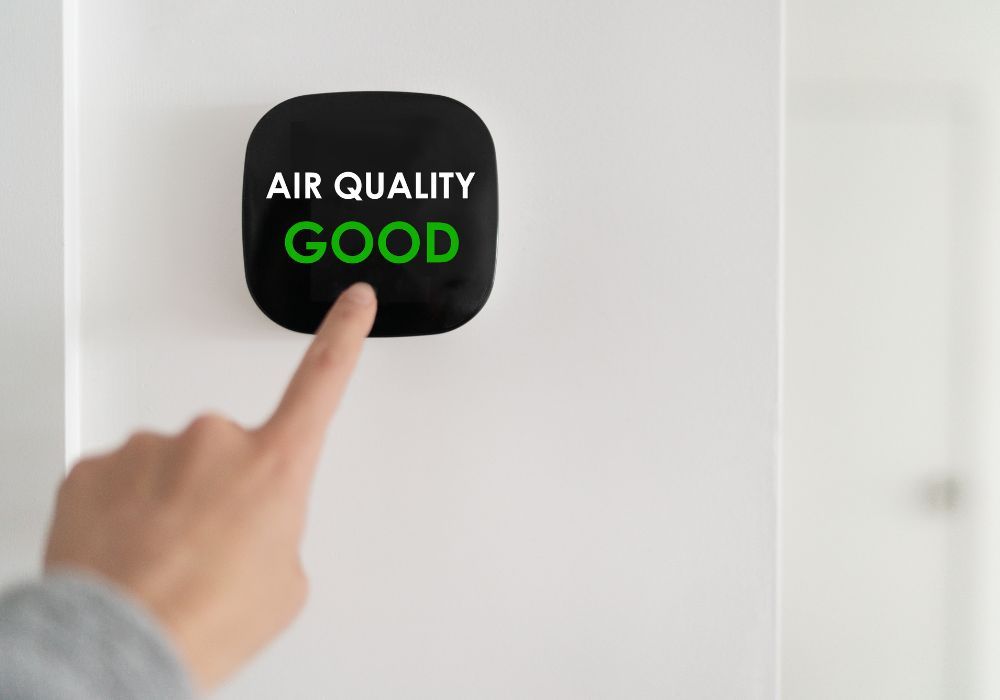
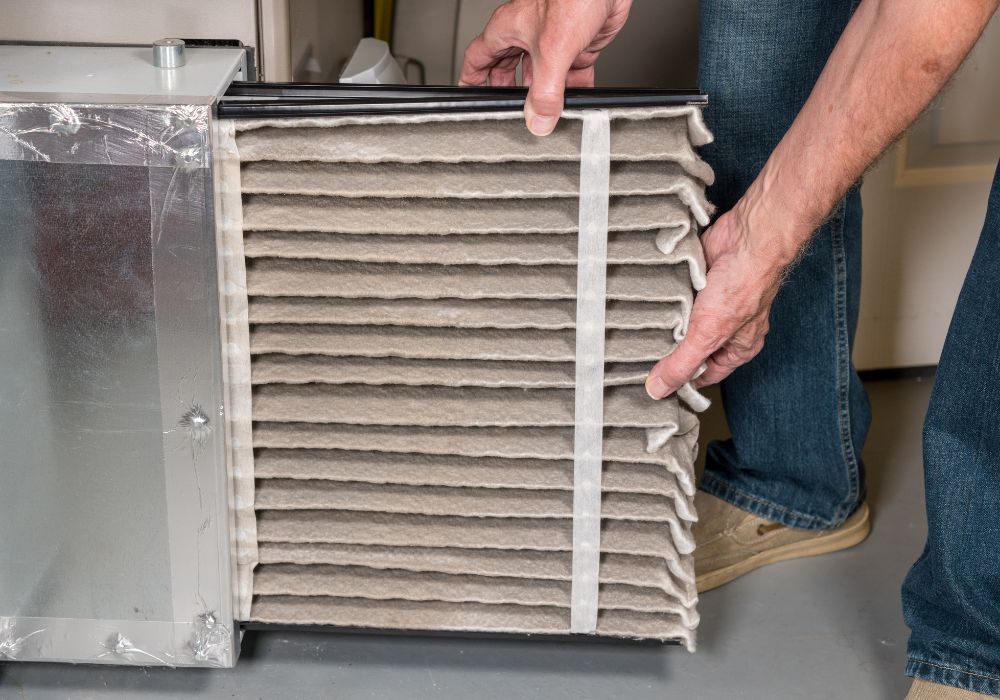




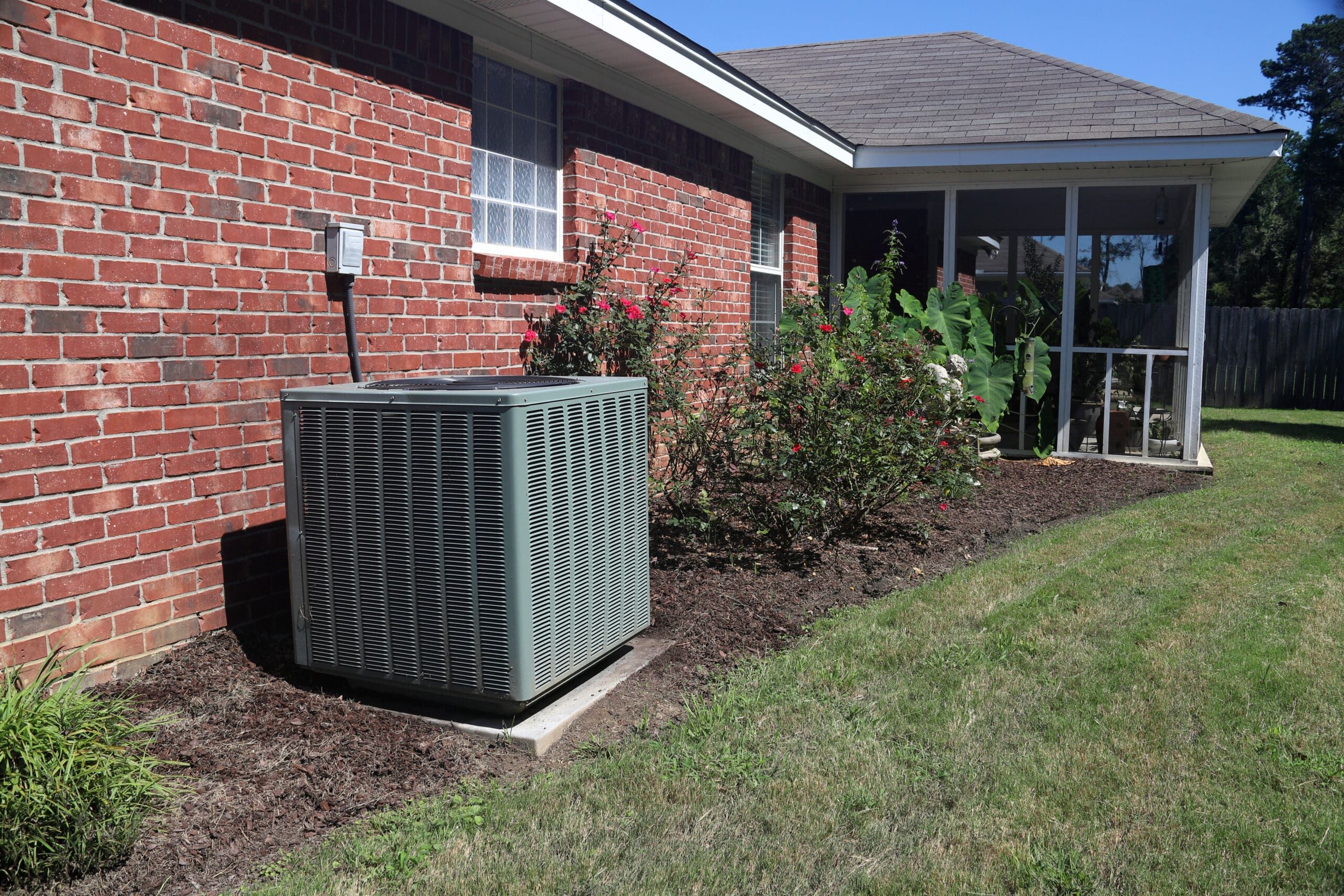

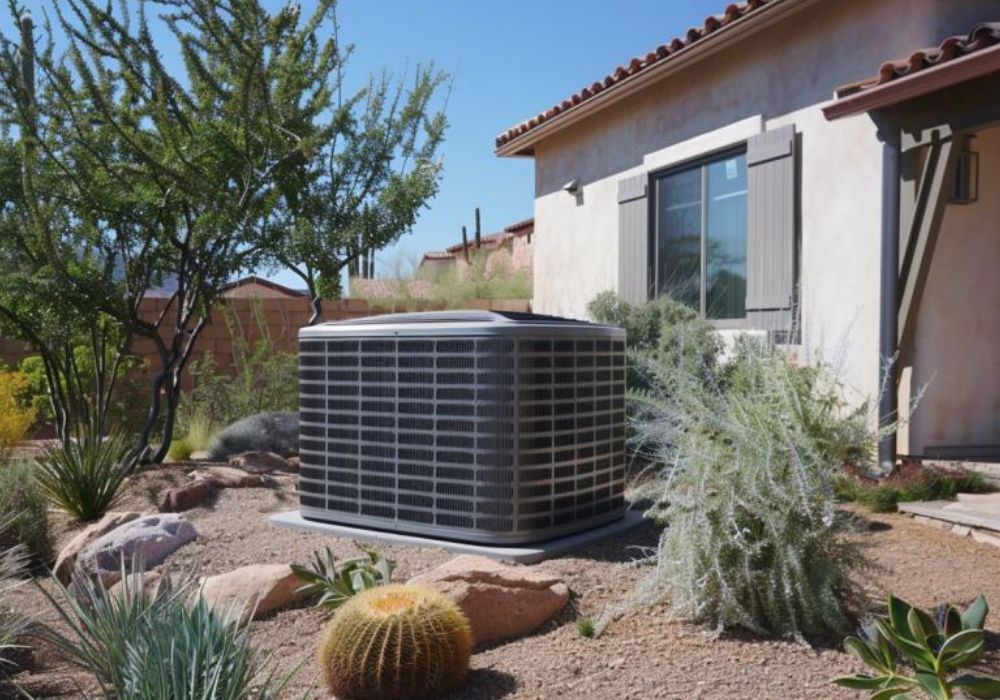
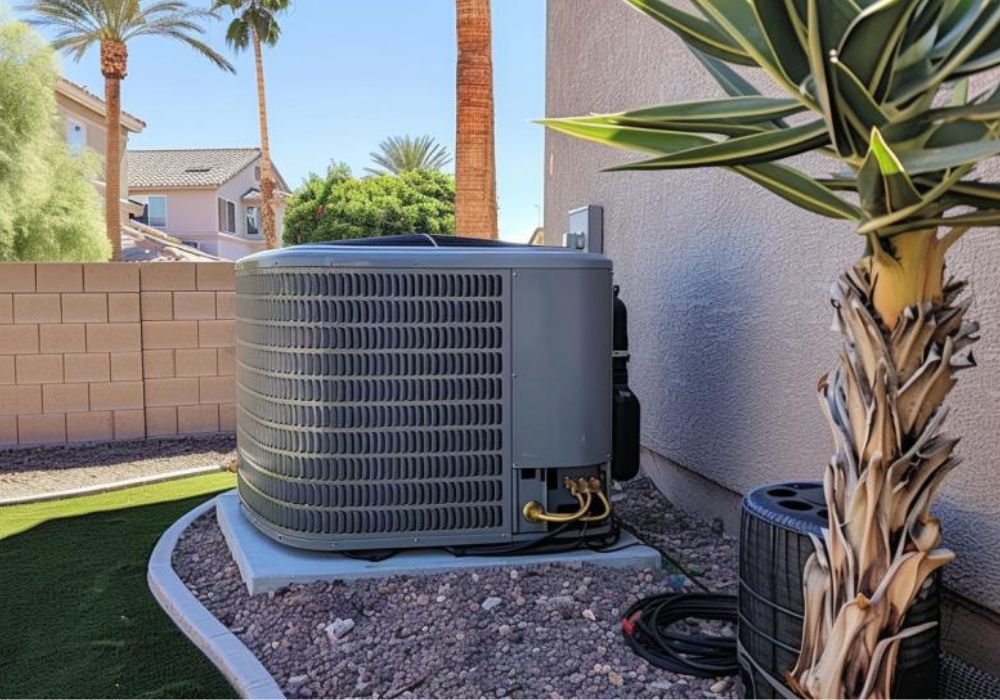
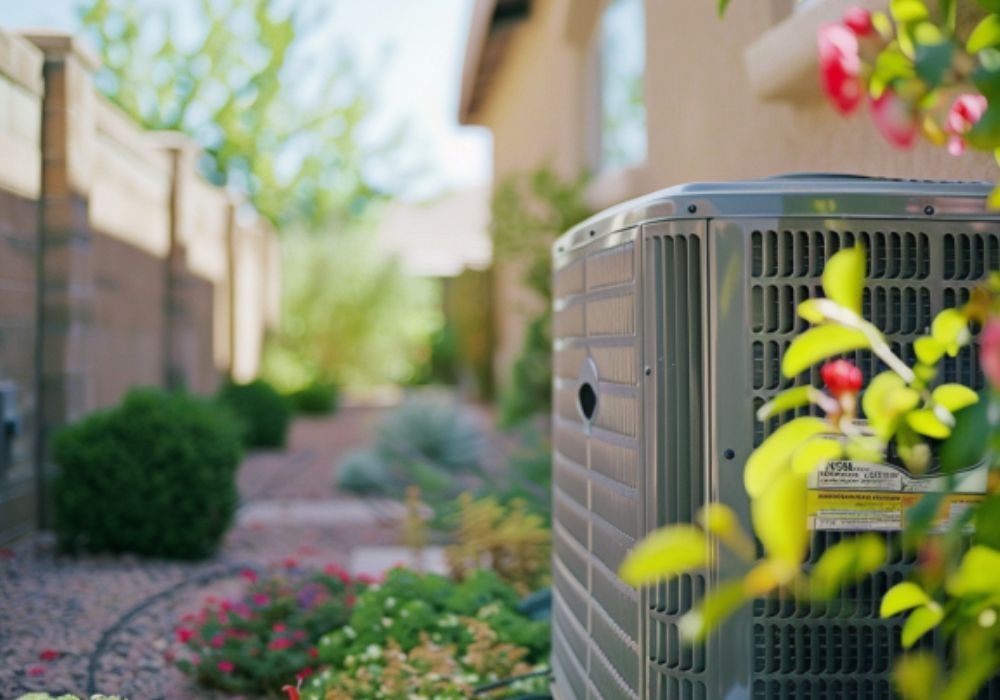
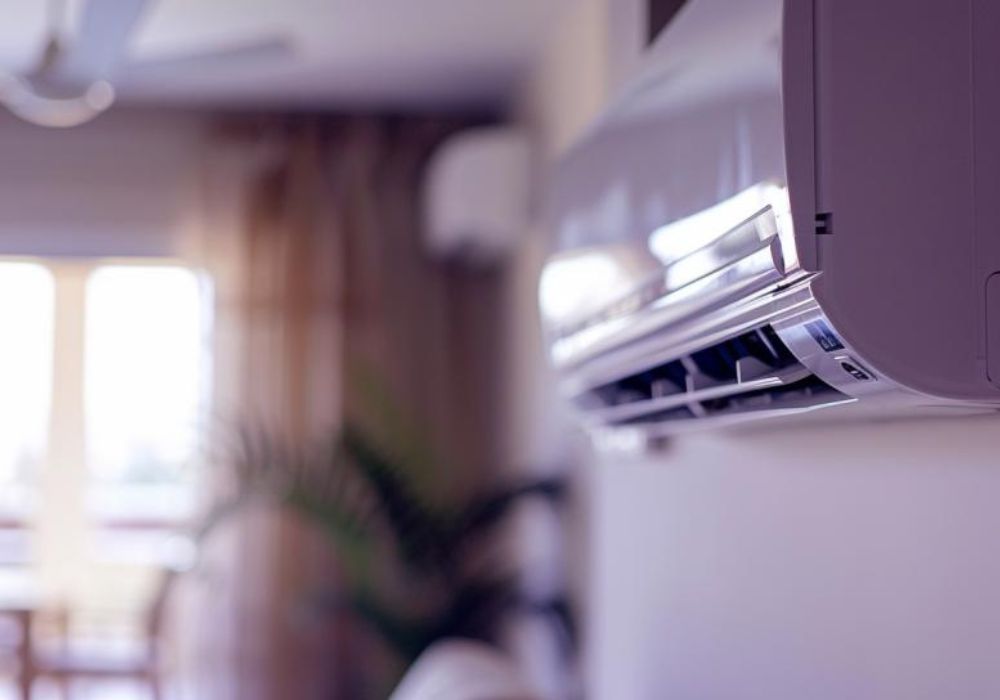
Leave a Reply